How cult comic book shop Forbidden Planet changed the way we consume geek culture
Four decades on, the institution is still enjoying a position both at the top of the market and in the hearts of nerds across the land
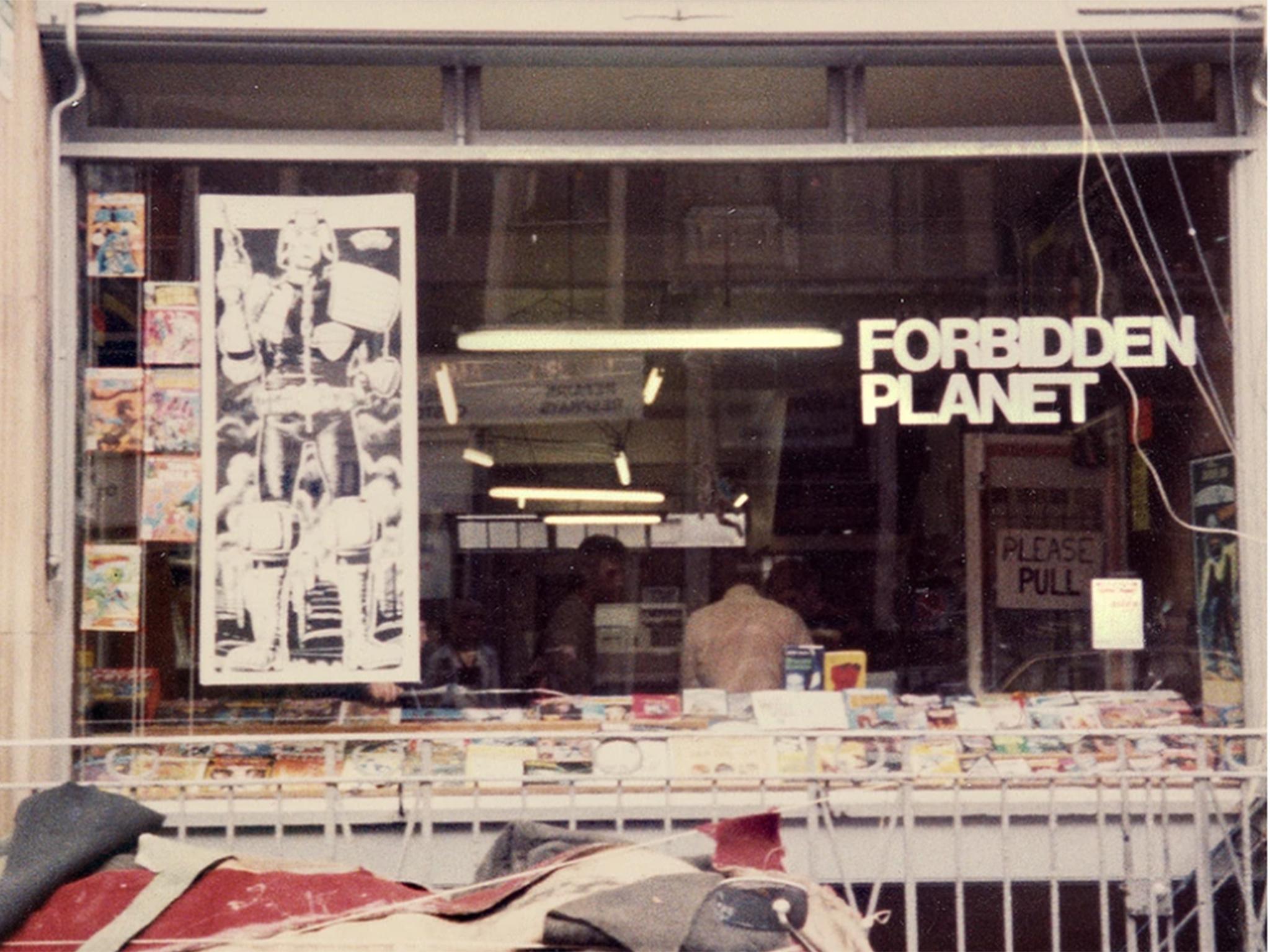
If you haven’t picked up a comic in a few decades, it might surprise you that buying them – especially American superhero fare from Marvel and DC – isn’t quite as straightforward today as you might remember.
Back in the 1970s and early 1980s, American comic books could be picked up in newsagents, often shelved alongside the home-produced titles such as Beano, Misty, Whizzer and Chips, and Warlord.
But while you could generally guarantee that your friendly neighbourhood newsagent would be able to procure for you British comics week in and week out, American titles such as Spider-Man were a different matter. Supply was random and the monthly comics would appear in uncertain quantities, and you could never guarantee that your newsagent would get the following month’s Uncanny X-Men, or even that they would get in any American comics at all.
And that led to the rise of what is known as direct market, which saw distributors ship brand new comics in the week that they were published straight to a new breed of specialist comic shops that began to spring up around the UK.
Today, most towns have a specialist comic shop which works on this model, but one of the most venerable and successful brands is Forbidden Planet, which is celebrating its 40th anniversary and enjoying a position at the top of the market for not only monthly comics but the ever-growing world of geek culture that takes in action figures, toys and collectible movie merchandise.
Forbidden Planet is just a shop, albeit a long-running and successful one. But it also occupies a position in the hearts of many consumers of popular culture, both long-standing ones who remember the days when access to comics was not as easy as it is now, and younger fans who have grown up with easy access to the plentiful products of geek culture.
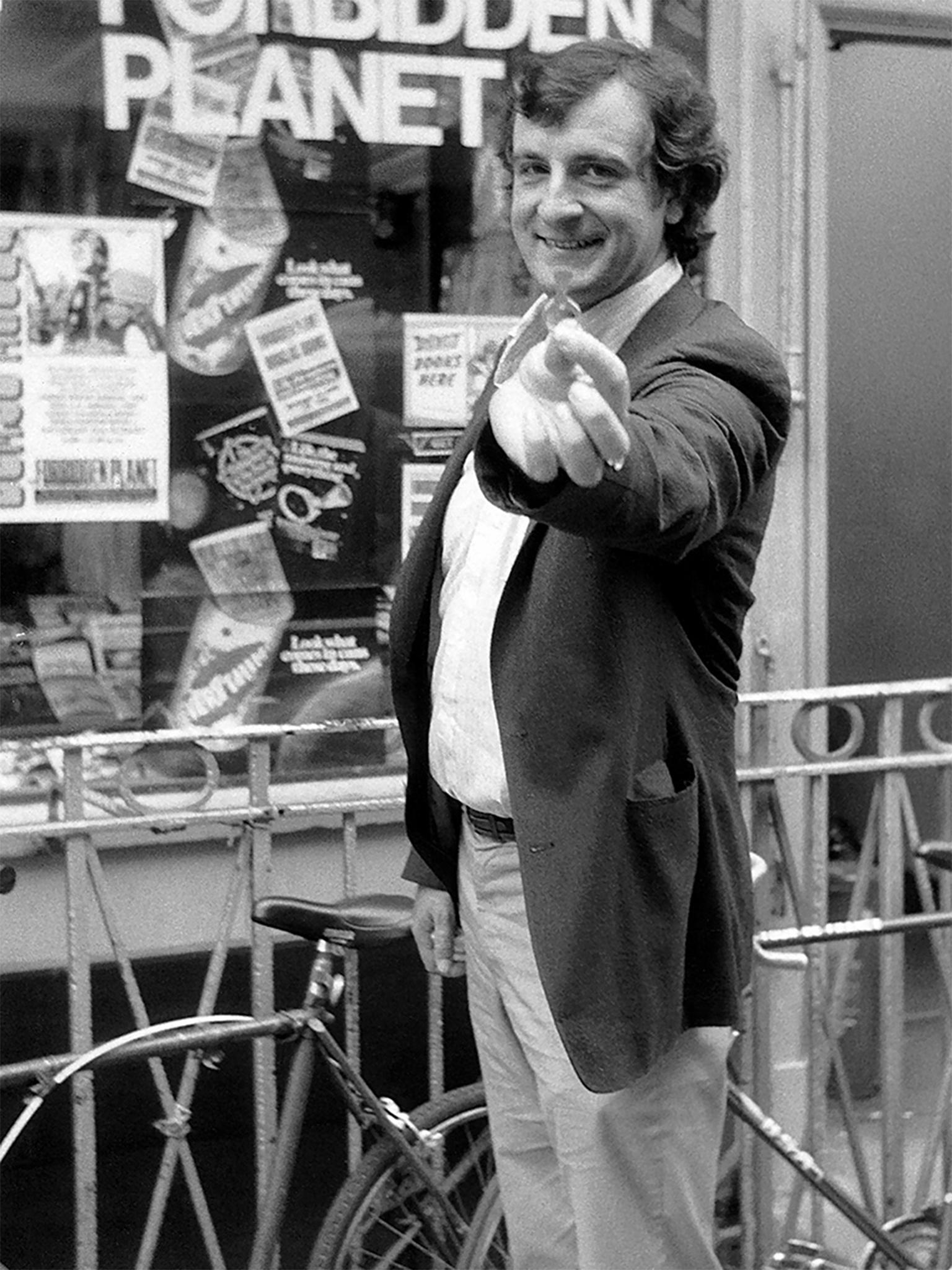
“I think I discovered Forbidden Planet, much like everyone else, through those marvellous Brian Bolland ads on the London Tube,” says author, comics writer, and all-round geek culture god figure Neil Gaiman. The ads in question are iconic; Brian Bolland is one of the most talented and much-loved British comics artists, who back in the late 1970s was a star of British sci-fi weekly comic 2000AD and his ads for Forbidden Planet, which ended up adorning a million carrier bags, featured a coterie of grotesque characters and the now-famous legend, “People like us shop at Forbidden Planet”.
Back when Forbidden Planet had first opened and was in the first few years of finding its feet, Gaiman was years away from making his name as the writer of the long-running comics series The Sandman, his novels American Gods and Good Omens (with Terry Pratchett), much less the TV adaptations of those works. How important was finding this oasis of geek culture to him back then?
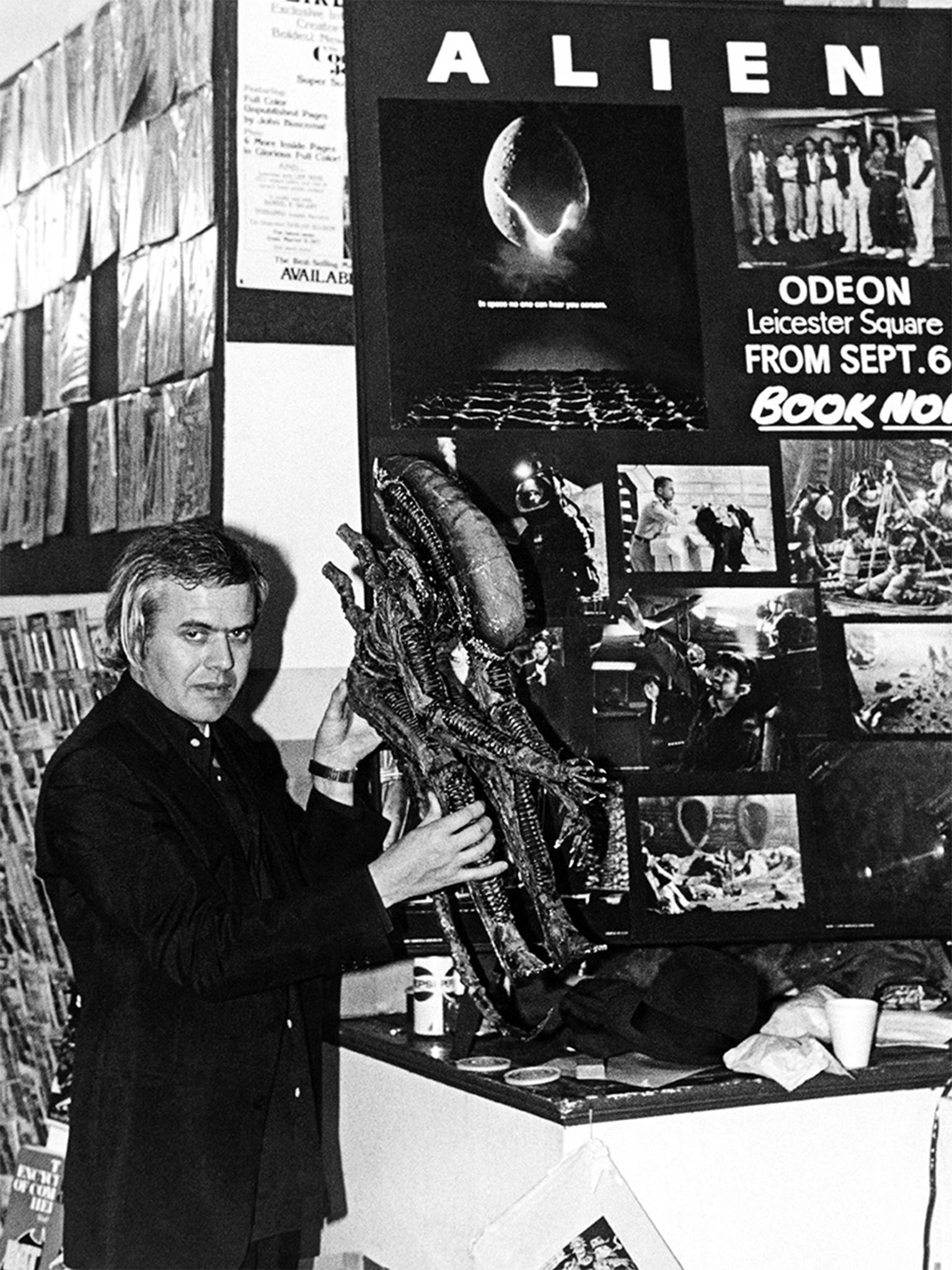
“I’m not sure I would have survived as a young journalist without Forbidden Planet,” he acknowledges.
In those far off, pre-internet days, it was a lot more difficult for fans of geek culture to find each other. You might have been the only person in your entire school who read comics. Finding your way to a shop like Forbidden Planet was opening up a world of other people like yourself.
As venerable as Forbidden Planet might be, it wasn’t quite the first comics shop in the country. People speak very fondly of a shining light in London’s geek scene in the shape of Dark They Were, And Golden-Eyed (where Forbidden Planet takes its name from the 1956 science fiction classic movie starring Walter Pidgeon and Anne Francis, the forerunner shop borrowed its name from a 1949 short story by Ray Bradbury).
Dark They Were, And Golden-Eyed shone brightly for a short time; located on Soho’s Berwick Street from the late 1960s. Gaiman vividly remembers bunking off school to head into its dark recesses to discover the latest science fiction books. Plenty of people who became luminaries in the science fiction and comics fields hung out there, from the aforementioned Bolland to Bryan Talbot to Alan Moore.
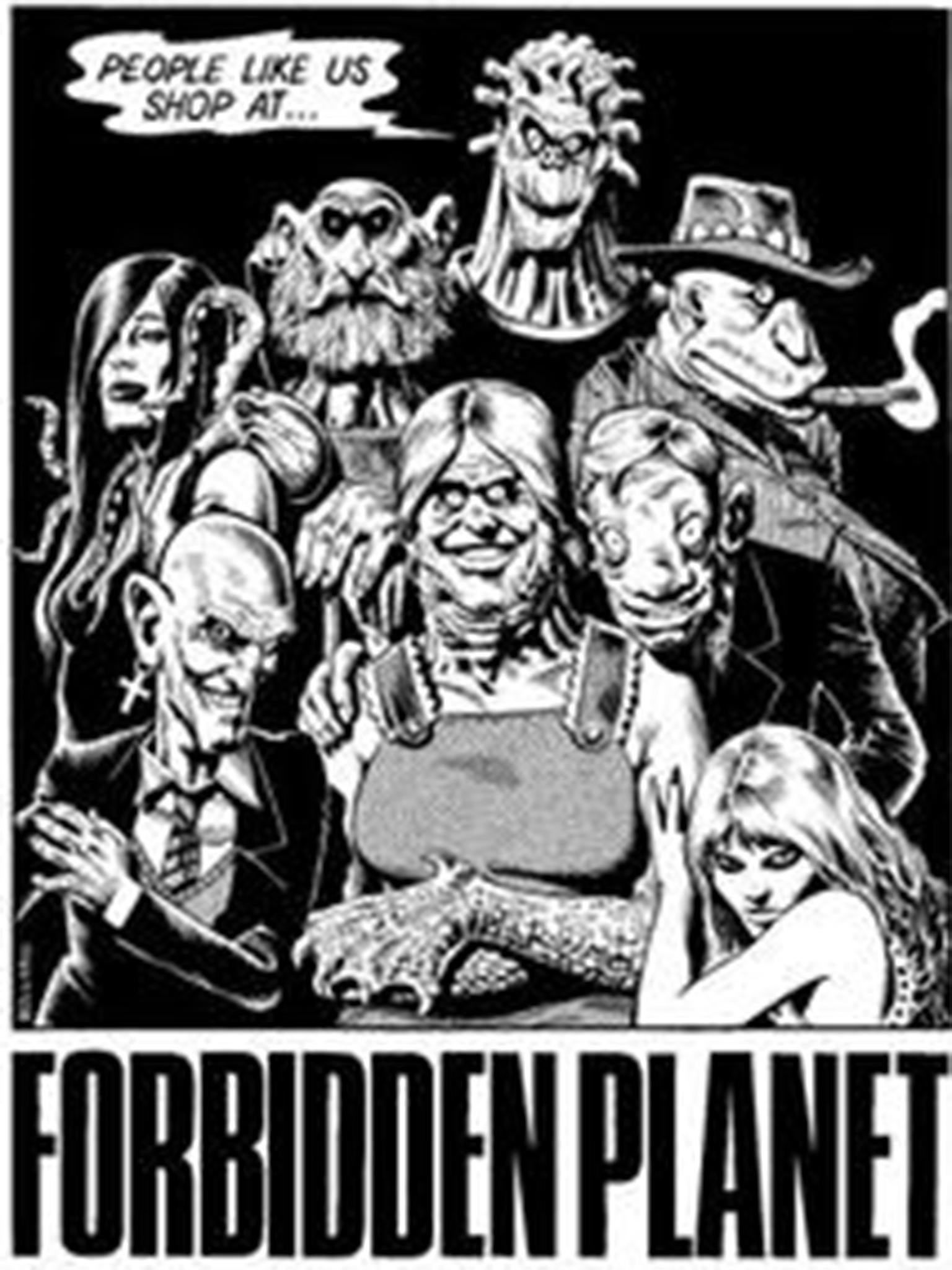
But one regular customer in particular was to go on to shape the future of geek shopping in the UK. Nick Landau produced a comics fanzine and helped organise the earliest comic conventions in the UK, and in the late 1970s he spotted a gap in the market for the growing number of comics fans whose only access to the output of Marvel and DC was their local, haphazardly-stocked newsagents, while the comics put out by independent and underground publishers were practically unobtainable.
With like-minded individuals Mike Lake and Mike Luckman, Landau set up a company to import American comics and get them into the smattering of shops such as Dark They Were, And Golden-Eyed. When they decided to open their own shop in 1978 on Denmark Street, they christened it Forbidden Planet, and together with Dark They Were and the New Cross-situated Weird Fantasy, these were practically the first and only specialist comic and science fiction shops in London four decades ago.
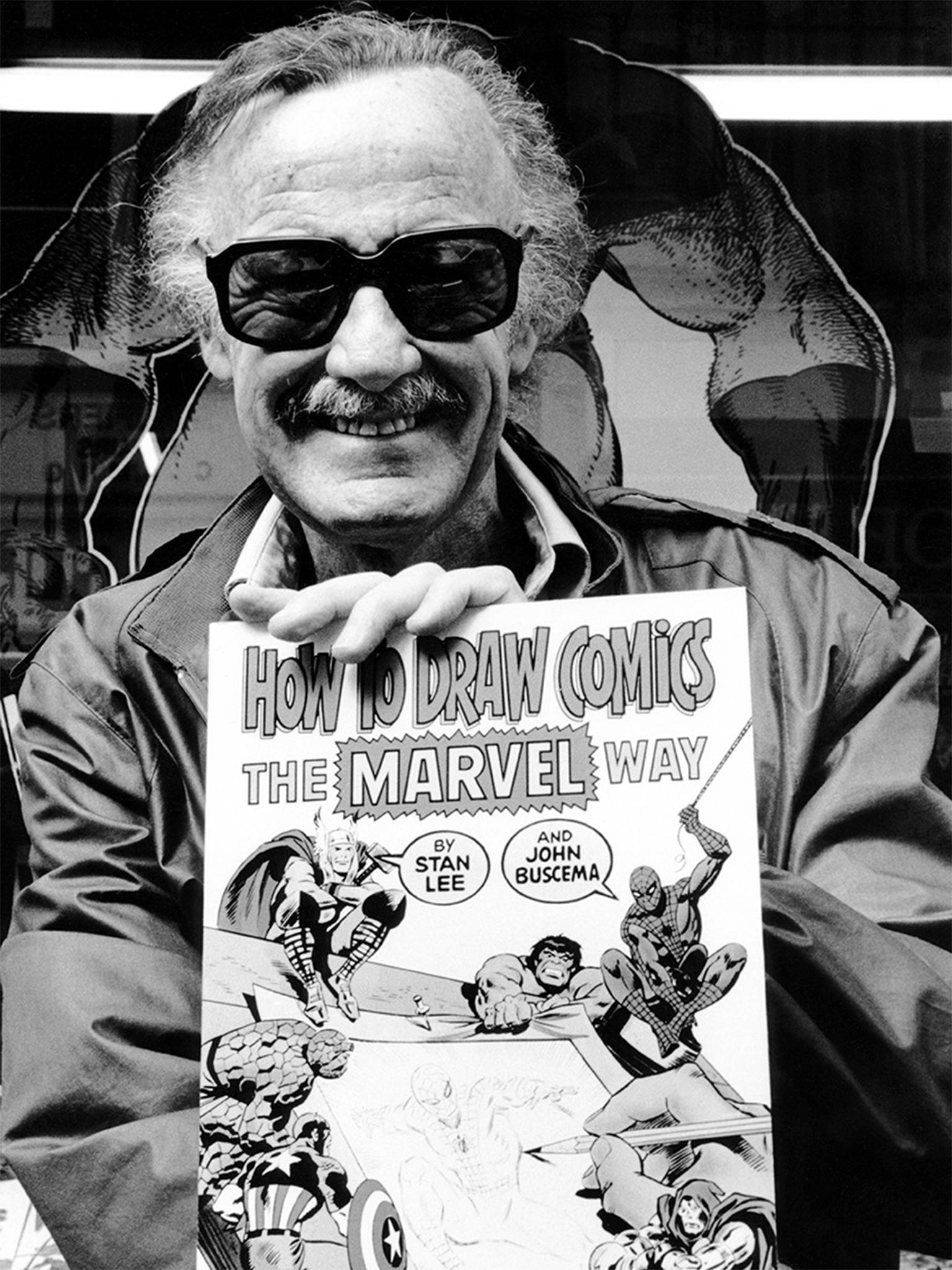
Another famous name who cut his teeth at Dark They Were is broadcaster and comics fan Jonathan Ross. When that shop closed in 1981, a lot of the custom gravitated towards the newcomer, Forbidden Planet.
“Denmark Street was my favourite Forbidden Planet location,” recalls Ross. “With both Dark They Were and Forbidden Planet, I thought they were remarkable places when I was really young. They had all these comics, and not just the superhero ones, but all this European stuff that these shops allowed me to discover.”
Gaiman agrees. “The fantastic thing about Forbidden Planet wasn’t books or comics or magazines but it was the number of intersections that were made … everybody went there and everything came through them. I’ve got friends I’ve had for 30 years who were made in Forbidden Planet, waiting in line to get someone to sign a book or comic.
“It was where we found each other, we the geeks, we the few, we the people who loved this stuff and didn’t know if there was anyone else like us.”
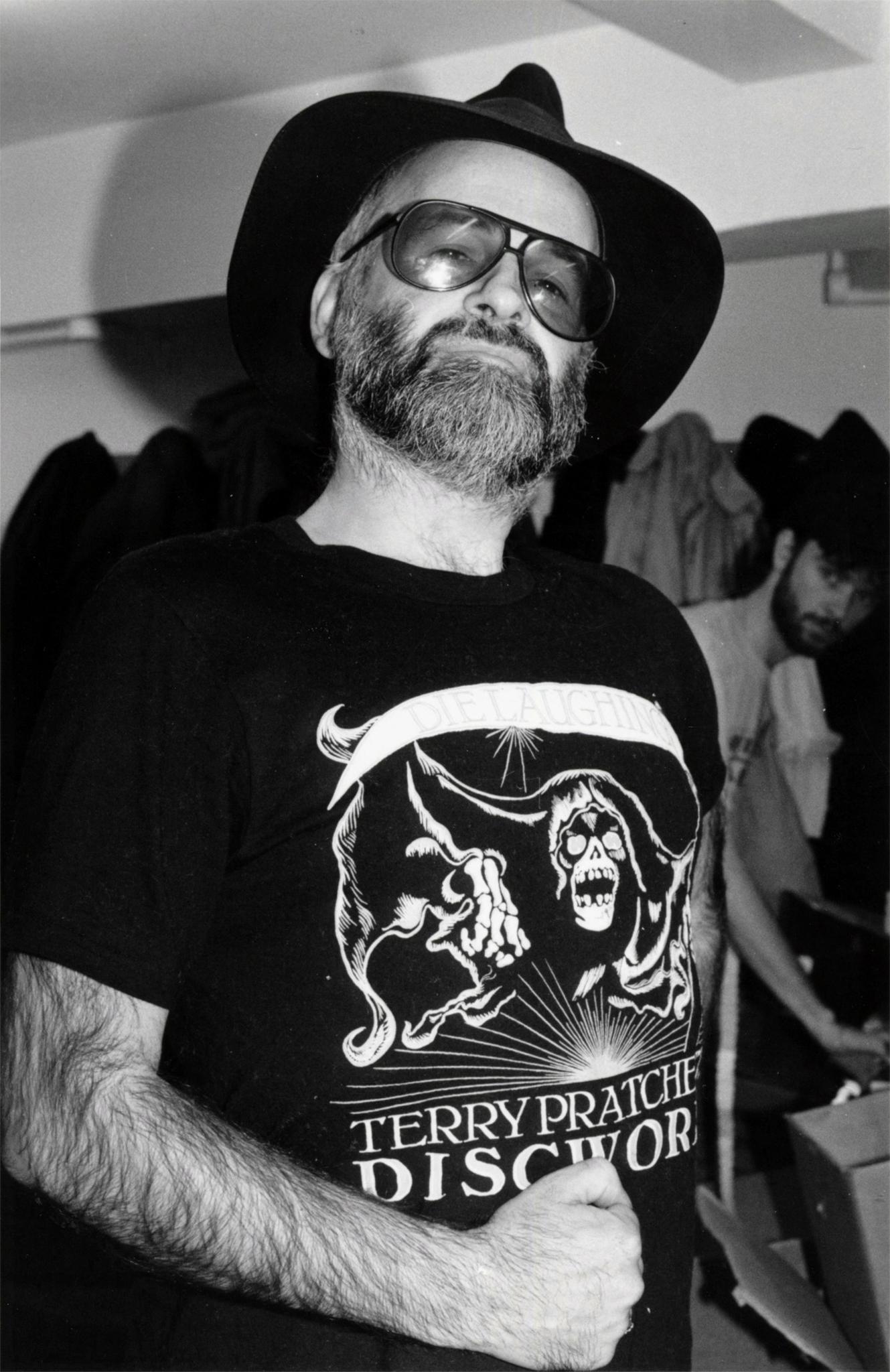
Most of the biggest names in science fiction and comics have passed through Forbidden Planet at some point, from Douglas Adams (1979) to Mark Hamill and David Prowse (1980) through Stan Lee (1987), Stephen King (1983), Game of Thrones author George RR Martin (2009) and science fiction grandmaster Arthur C Clarke (1986).
The shop proved so popular in its early days that they had to open a second store, just round the corner on St Giles Street. Further moves followed, first to New Oxford Street and then to the first Forbidden Planet Megastore on Shaftesbury Avenue, which remains its flagship store today.
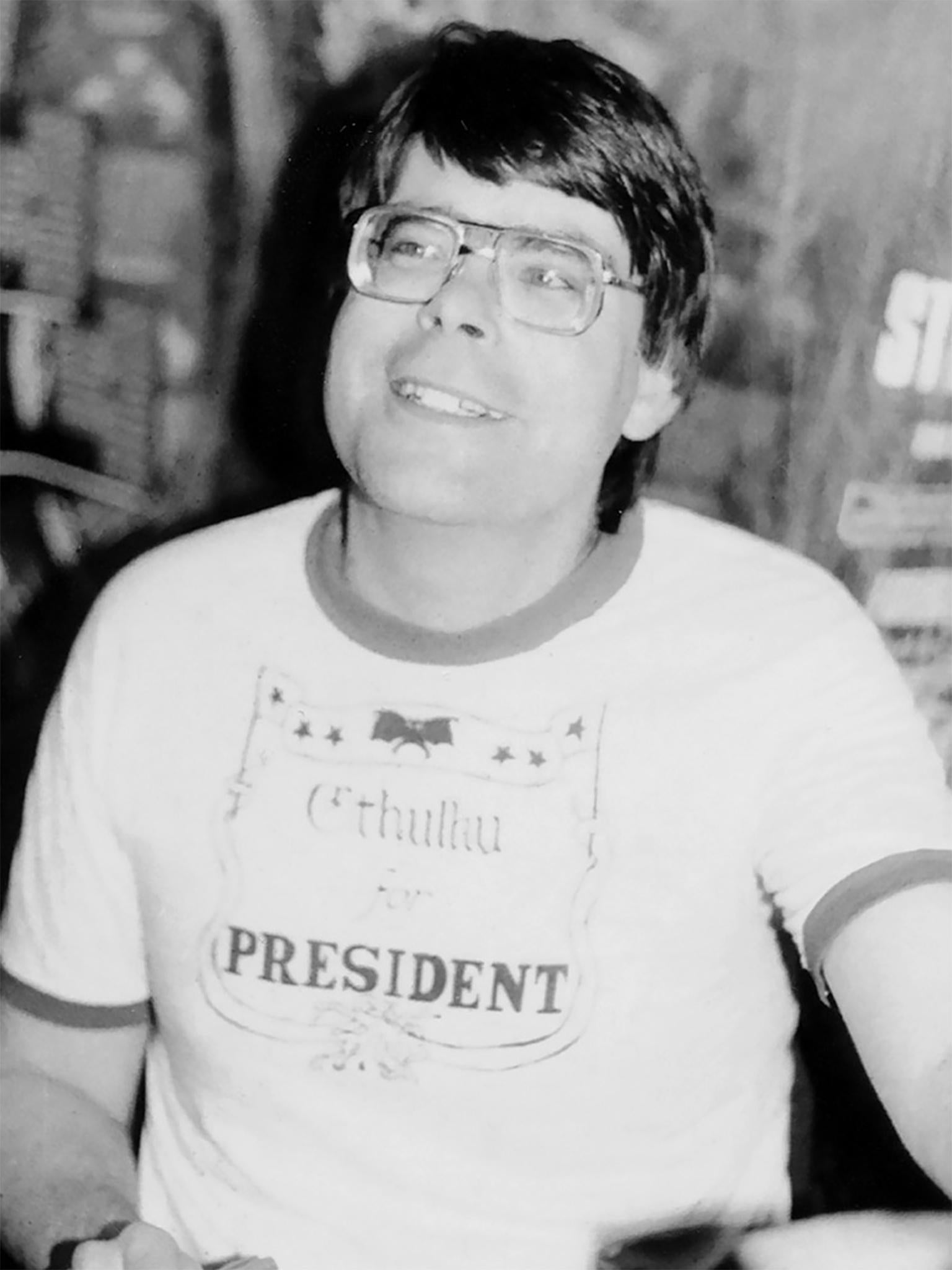
But more expansion was to come, as with the turn of the millennium geek culture exploded into the mainstream. New Forbidden Planets sprung up, in Birmingham and Bristol, Liverpool and Newcastle.
Confusingly, there are actually two companies called Forbidden Planet now, dating back to 1992. Mike Luckman went to New York to open a Forbidden Planet store, while Mike Lake set up a series of Forbidden Planet shops mainly in Scotland and the north of England, trading as Forbidden Planet International. Landau set up the Titan Entertainment Group in 1993, which today runs the Forbidden Planet chain, as well as a major book and comic publishing arm. But they all have their origins in the Denmark Street shop which opened in 1978.
“I suppose Forbidden Planet today is more of a pop culture destination that the comic shop it started as,” says Ross. “The big store in Covent Garden doesn’t have that feel of a 1970s comic shop anymore, but it’s an amazing place. I go there fairly regularly and they save my comics for me every month.”
Gaiman adds: “We live in a weird period of geek culture, especially for those of us who grew up with it in the 1970s and 1980s. For a long time I would talk to people in Hollywood and they would tell me that people didn’t like to see science fiction and fantasy in the cinema or on their TVs. What’s lovely to see now is the generation that has come up, those who grew up discovering shops like Forbidden Planet, who are now making the decisions in TV and movies, and they’re the sort of people who can see that isn’t true, that people do love science fiction and fantasy.”
Forbidden Planet is now no longer the only specialist geek shop in the country, not by a long way. But it’s probably fair to say that because of the hard work put in to make it a success 40 years ago, there wouldn’t be comic shops in most towns, HMV wouldn’t be selling rows and rows of Funko Pop! Vinyl bobblehead geek figurines, and WHSmith wouldn’t have piles of discounted books about the Marvel Universe or Game of Thrones.
And there’s another important change that’s taken place as well, and that’s the clientele. Back when Brian Bolland did his first ads for Forbidden Planet, the “people like us” who shopped there according to his illustrations were outsiders, just like geeks were at the time. And something else as well. Gaiman says: “Yes, we were mainly male and mainly in our early twenties. But I absolutely love the fact that this has changed over the years and now it is absolutely no longer true of the fans.”
Join our commenting forum
Join thought-provoking conversations, follow other Independent readers and see their replies
Comments
Bookmark popover
Removed from bookmarks